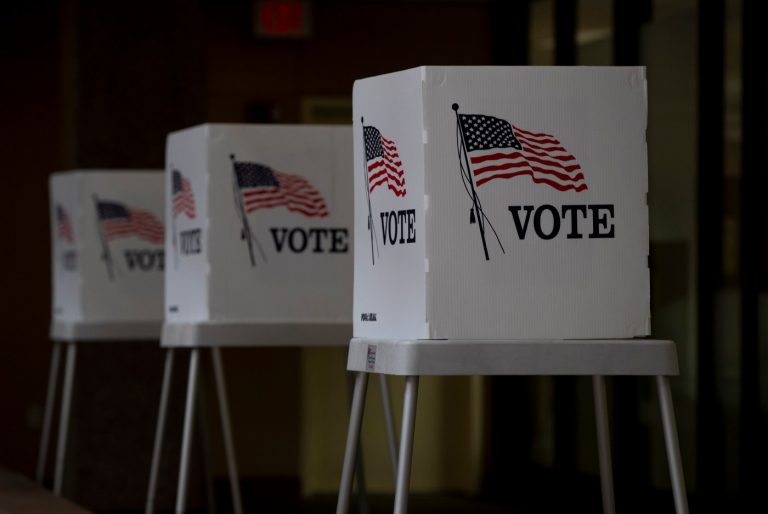We are the people who live with serious mental illness. We are clients and providers in California’s public mental health system. We are voting “no” on Proposition 1, the mental health funding reform and bond measure on the March ballot.
Prop. 1 wipes out what this community has fought for and accomplished over the last 20 years. In 2004, we collaboratively wrote the Mental Health Services Act, or MHSA, and qualified it for the ballot by gathering more than 370,000 signatures and it passed. For the first time in California history, the public mental health system had a dedicated funding source for the services we wanted and we designed — and it exceeded what Medi-Cal covered.
Currently, the MHSA is controlled at the community level. Counties receive funds based on formulas with few restrictions and are required to design programs and spend the funds by involving people living with serious mental illness and their families, including those from marginalized communities. The MHSA funds highly effective and unique services, such as peer support where people who have recovered from serious mental illness act as providers for each other. Prevention and early intervention funds went toward community-defined services for those who do not have access through traditional pathways for behavioral health.
Now comes Prop. 1, which was crafted behind closed doors and all but decimates the MHSA with a plethora of new state mandates and top-down control. Hidden behind the campaign slogan “treatment not tents” are devastating cuts to voluntary mental health services for the most severely mentally ill and an unprecedented giveaway of taxpayer money to build privatized facilities.
California’s counties testified that if Prop. 1 passes, it will force counties to cut basic mental health services, including outpatient treatment, crisis services and peer support services that maintain stability for high-risk clients and save lives. Prop. 1 also asks counties to provide services to those with substance use disorders from the same severely diminished funds.
It’s simply not possible to expand services while slashing their funding. Prop. 1 provides no new funding for behavioral health services, which means there’s nothing to plug the new gaps it’ll create. Instead, it pilfers voluntary services to subsidize a new empire of private behavioral health facilities. Prop. 1 shifts almost a billion dollars a year out of services and into “housing interventions,” which will “sustain the necessary treatment centers” built under the companion bond. But that doesn’t necessarily mean new homes.
Of the $6.4 billion bond, $4.4 billion is designated for an infrastructure program with grants for private businesses to build clinical treatment facilities they will operate. With interest, the bond costs could be 60% more over their lifetime, which deserves consideration when the state faces the worst budget deficit since the Great Recession.
Infrastructure spending is already in the works to build the facilities California needs — and does not yet have — to implement its other recent initiatives, such as Senate Bill 43, which loosened the state’s landmark conservatorship law and expanded the criteria for involuntary treatment to include people with substance use disorders. Of course, there’s also CARE Court. Yet all but two counties chose to delay SB 43 from taking effect for two years because there are no locked facilities to place people. Prop. 1 can build those facilities.
Related Articles
Letters: Enforce laws | Push back | Humanitarian aid
Actually, compartmentalizing can be good for you
What Gen Z and millennial travelers are seeking in 2024
Mortality surged for renters facing eviction during the Covid-19 pandemic, study finds
Climate change is fueling a new type of anxiety, therapists say
The measure is being marketed as the latest panacea to address homelessness, but it will fail to do so. Last year, a comprehensive UCSF study found that homelessness is not caused by serious mental illness or substance use disorders but by high rents, low incomes and sudden loss of incomes. The research offered different solutions: small amounts of rental assistance to help keep people housed.
We also know that a housing-first strategy is what stabilizes people with behavioral health needs, allowing them to receive care they want in a permanent home. Expensive treatment facilities and vague, broad, force-first civil commitment laws will just temporarily disappear some of our unhoused into revolving-door systems that rarely end with a permanent home.
Prop. 1 is bad policy. The public mental health system needs the MHSA services funding to keep people with serious mental illness well-stabilized and housed. The only reason the MHSA is on the ballot is because of protections that do not allow it to be fundamentally altered without voter approval.
That gives voters the opportunity to save the MHSA and vote against Prop. 1.
Clare Cortright is policy director at Cal Voices. Cortright wrote this column for CalMatters.













+ There are no comments
Add yours